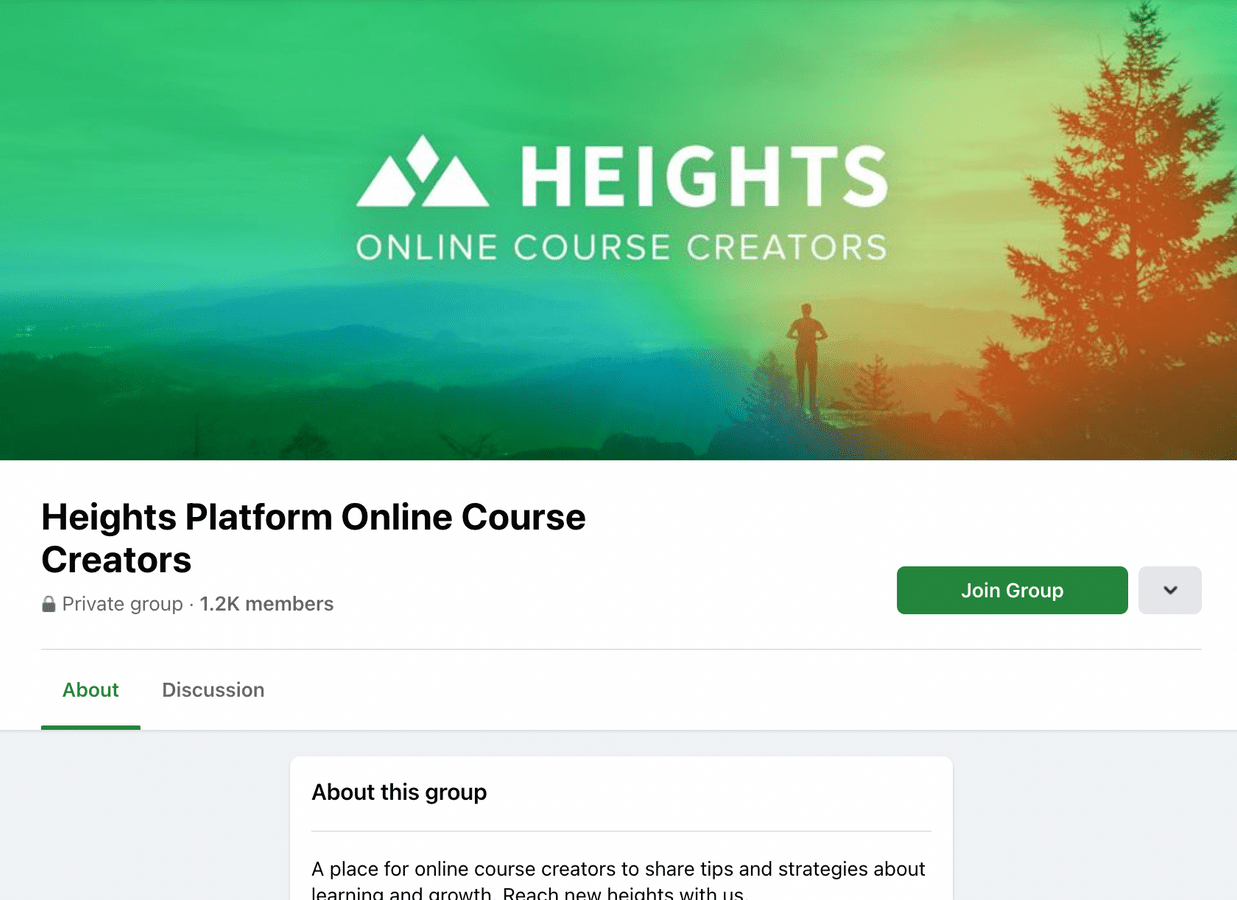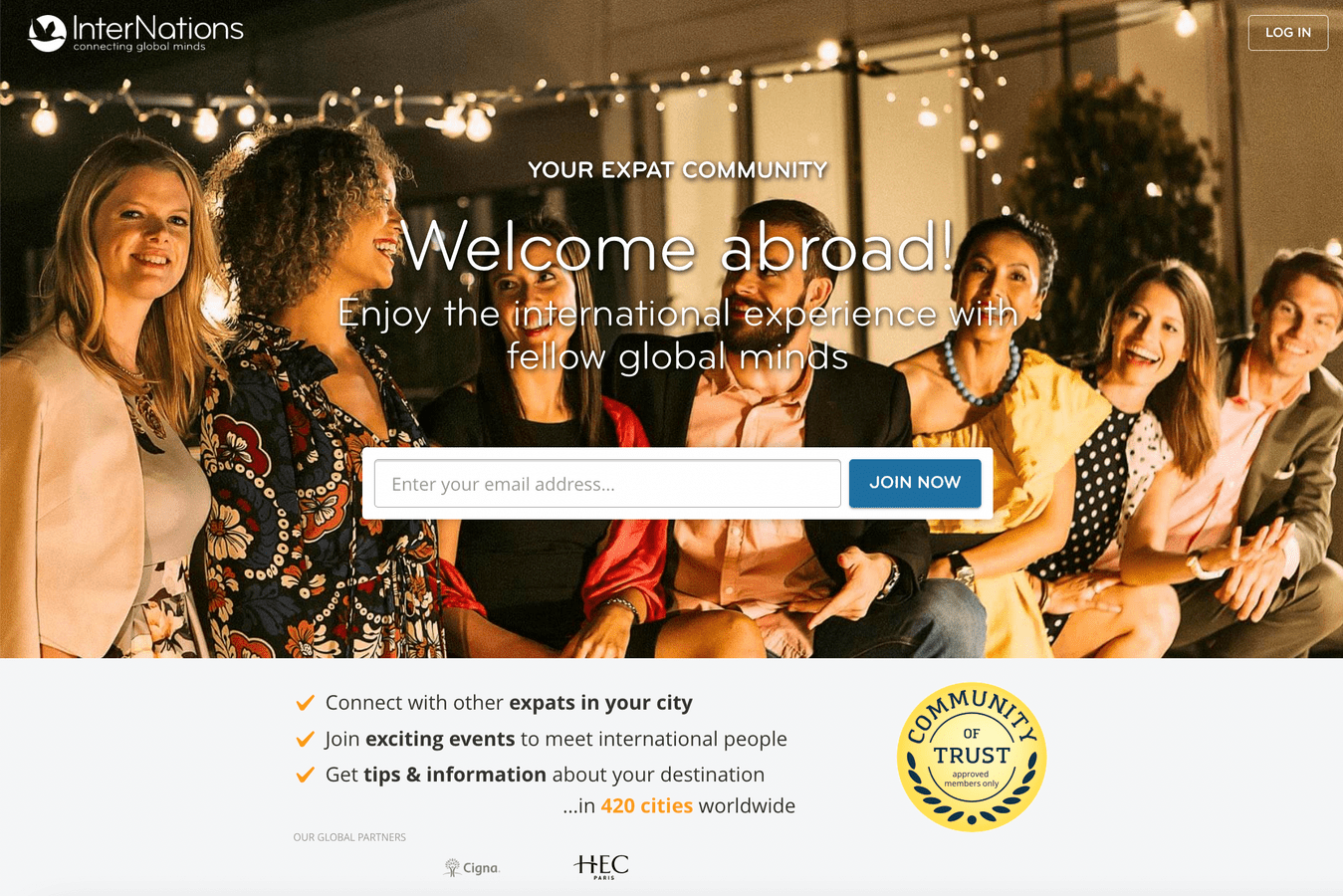What Are The Different Types of Online Communities?
6 minute readAn online community is a space where people with common backgrounds or interests come together and discuss, share ideas, learn and interact with each other online.
Even if you are new to the world of online communities, you are probably familiar with certain types of online communities, such as free, social communities (for example, Facebook groups). What you might not know is that communities can be a powerful business tool where you can gather insights about your target audience, and promote and grow your business.
Depending on your goal and what you want to achieve with an online community, you might choose to structure it in one way or another and choose between different community types. In today's article, we will describe the main types of online communities and what makes them unique. If you want a full list of online communities and their categories, we've covered that too.
To learn all about the benefits of online communities, check out this article from our blog: Why You Should Build an Online Community of Engaged Customers and How to Do it
Before we get into further details about the community types, it is important to note that it is not easy to classify communities and make them fit into a box. In fact, one of the benefits of growing your own online community is that you have the flexibility to structure it the way you want and best fits your needs as a business owner.
So in this article, we will try to narrow down the main online community categories based on price, goals and topics. However, keep in mind that most of the time these categories interconnect and overlap. Each community is different because the people that make it up are unique and behave in different ways.
So your own community can - and most probably will - incorporate more than one category!
That said, let's see what are the main online community categories out there, first starting with the price.
Free vs Paid Online Communities
One main differentiation between online communities is their price. Can members access the community for free or do they need to pay a membership fee?
Common examples of free online communities are social media groups (Facebook, Linkedin) and other tools that are accessible to anyone and free to join (Discord, Slack). These are typically communities where the main goal is to socialize, connect with people who share a common interest or learn more about a specific topic.
Free online communities are the easiest ones to set up but the hardest to manage: in most cases, these types of communities are hosted on social media platforms and have the potential to attract a large number of members. However, the ease of access can lead to more moderation efforts if you want to keep a safe environment free of spam.
Paid online communities are spaces where members have to pay an entrance fee or monthly subscription in order to join. Examples of paid online communities are branded or learning communities built around a business.
Most paid communities are hosted through designated community platforms (such as Heights Platform) that allow hosts to charge an entrance fee and provide members with login information.
Check out this guide to help you choose the best online community platform: How to Choose the Right Online Community Platform For Your Knowledge Business
While it can be challenging to promote a paid online community and get new members to join, there are many benefits to this approach, including more control over the members, higher quality and vetting, the opportunity to create a brand experience and more.
For more on this topic, read: Creating a Free vs Paid Online Community
Stand-Alone vs Branded Communities
Another way to categorize online communities is by looking at the way they are built. By stand-alone, we mean those communities that are not depending on a business, brand or product.
Branded communities are built from a business around a product or service. In most cases, to become part of a branded community, members are required to pay an entrance fee, or they’ll get access to the community once they make a purchase.
For example, online course creators and coaches often offer a community aspect to their students, where they can discuss the material learned in the course. In this case, students get access to the community only once they purchase the online course or enroll in the coaching program. This is an example of a branded community linked to a product.

As an online course creator, you could also decide to create a stand-alone community to attract new leads or generate an extra income stream. For example, you could offer a branded, "exclusive" community to your students while at the same time building a (free or paid) more general stand-alone community for people who are not your customers yet but are interested in discussing the same topic.
Related Article: 7 Steps to Revive Your Online Community and Increase Engagement
Other Online Community Types Based on Topics
So far we have described four main categories of online communities based on price and accessibility. But if we look at the topic of discussion inside a community, we can come up with countless more categories. We will try to summarize community topics and goals into three main types:
Learning Communities
If you are selling online courses you should consider creating a learning online community for your audience. Learning with others inside a community is extremely powerful as members get to ask questions, share their progress and learn from others - not only from the creator.
This type of community is designed to bring together learners and students into one virtual space. Other than expanding the members' knowledge, learning communities can provide a safe space for emotional support during the learning process.

As we previously discussed learning communities can be part of an online knowledge business and complement the material students go through as part of an online course or coaching program. Learning communities can be free to access or have a monthly fee, or be part of a paid program or bundle.
Heights Platform offers you the flexibility to structure your learning community in the best way for your business, whether you want to offer a community aspect to your online course students, or solely focus on selling your online community.
Social Communities
Social communities are among the most common community types out there, and their goal is to bring people together to socialize and build connections.

People join social communities to have a friendly chat, share, and meet new people: they are about sharing insights and making connections rather than promoting a product or business.
Most social communities are hosted on social media, because of the ease of entry, accessibility and reach that these platforms provide.
Networking Communities
Another common goal of online communities is to create connections or networking opportunities by bringing together people who share common interests or backgrounds.
A networking community is focused on connecting one person to another with a specific purpose and goal in mind, for instance, finding experts in a specific niche, connecting with people who share something in common, expanding the business network, or looking for new jobs or support.
Building Community With AI
Heights AI offers creators a smarter way to build and grow online communities. Whether you’re just getting started or looking to scale, AI tools inside Heights Platform can help with community post suggestions, weekly round-up emails, and even moderation assistance to maintain a healthy discussion environment.
As your community grows, Heights AI learns your preferences and suggests new content ideas, helps you respond faster to questions, and automatically drafts content for announcements, launches, or new challenges inside your community space.
With AI as your assistant, you spend less time managing and more time connecting with your members.
Using Community as a Lead Generation Strategy
A stand-alone community—especially one built around a shared interest or industry—can become a powerful lead generation channel. Course creators and digital entrepreneurs use free communities to attract future customers by sharing valuable content, answering questions, and demonstrating their authority in a niche.
When built on Heights Platform, you can create public or invite-only communities, segment access by products, and even pair your community with a lead magnet or online challenge to capture emails. The combination of organic traffic from public community posts and structured onboarding tools powered by Heights AI gives creators a proven way to generate leads and convert them into buyers.
Build Your Online Community with Heights Platform
If you are looking for a platform where to build your online community space, sell online courses, and digital products, host your site and more, then look no further.
Heights Platform is the all-in-one solution for digital creators and entrepreneurs who want to start monetizing their knowledge and grow an online business.
Creating a community (whether it's free or paid), is a powerful tool for a successful and immersive online course business that offers value to its students.
Heights Platform offers a built-in community feature across every pricing plan. The community in Heights is a place where students can share their thoughts about your online course, ask questions, provide feedback and interact with you and each other.
Thanks to Heights AI, you can build, launch, and moderate your community faster than ever. From generating community prompts to sending automatic engagement emails and even analyzing which discussions drive conversions, Heights AI makes growing a thriving learning community effortless.
Create Your Online CommunityFrequently Asked Questions
What are the best online communities in 2025?
The best online communities today are those that foster real engagement and value—such as learning communities, niche networking groups, and creator-led branded spaces. Platforms like Heights make it easy to launch and scale these kinds of groups.
What are the two types of online communities?
Broadly speaking, communities can be free or paid. Free communities are often open-access groups, while paid ones offer exclusivity and focused experiences, often tied to a product or service.
How do you start a successful online community?
Start by defining a clear purpose, choosing the right platform, and planning how you’ll engage members. Tools like Heights AI can help by suggesting posts, managing tasks, and guiding your setup from idea to launch.
How can Heights AI help me build a community?
Heights AI assists with content generation, onboarding emails, moderation, and engagement analysis—allowing creators to automate the time-consuming parts of community building and focus on creating deeper connections.



